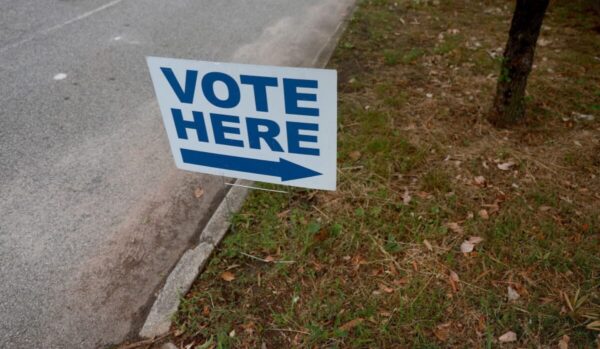A federal appeals court in Louisiana has upheld a lower court ruling that found a revised state congressional map violated the Voting Rights Act of 1965 by diminishing the collective influence of Black voters.
The ruling, handed down by a three-judge panel in the U.S. Fifth Circuit on Nov. 10, orders state legislators to complete a new map with reconfigured voting districts by Jan. 15 “for the result to be used for the 2024 Louisiana congressional elections.”
The ruling comes as several Republican-led states face legal challenges and increased scrutiny from the NAACP and other advocacy groups that allege the GOP was carrying out racial discrimination through gerrymandering, with the intent of excluding Black voters.

The Fifth Circuit justified its decision on the matter by citing a U.S. Supreme Court ruling in June, which determined Alabama had violated the Voting Rights Act by shutting out Black voters from the redistricting process, saying, “we now apply the court’s reasoning to the Louisiana redistricting.”
In September, the federal judge overseeing the Alabama case ordered the appointment of a special master to redraw the congressional map after state lawmakers submitted a second redrawn map that didn’t comply with the Supreme Court order to strengthen the state’s Black and minority voter pool.
Meanwhile, Louisiana’s newly elected governor, Republican Jeff Landry, said he planned to call for a special legislative session to take up the matter as soon as he takes office in January but expressed doubt about whether there was enough time to complete the map before the Jan. 15 deadline.
But outgoing Democratic Gov. Jon Bel Edwards has shown no desire to launch a special session at the end of his term, saying, “I remain confident that we will have a fair map with two majority Black districts before the congressional elections next year.”
Separately, a federal judge in Georgia also ordered state representatives there to redraw the congressional map ahead of 2024.
States had to redraw their congressional districts to reflect population changes that emerged as a result of the 2020 Census. In Louisiana, the Census showed nearly 4 percent growth in the Black population.
According to the numbers, roughly one out of every three residents in the state is Black, whereas the white population declined more than 6 percent over the past decade. However, the Republican-majority House approved a map with just one majority Black congressional district out of a total of six.
Gov. Edwards vetoed the map in March 2022, asserting that it violated Section 2 of the Civil Rights-era legislation because it was “not in line with the principle of fundamental fairness that should have driven this process.”
The Republican majority later overturned the veto, prompting a broad coalition of state advocacy groups, including the NAACP Louisiana State Conference, to file a lawsuit challenging the map.
Last year, a federal judge ruled the Louisiana map had been gerrymandered along racial lines, saying the map created one Black district in a state where a third of the population is Black while ordering lawmakers to establish a second district with a Black-voter majority.
However, a state legal doctrine that prohibits judges from modifying election procedures around Election Day meant the contested map was still utilized during the 2022 election.
Historically, Black voters in Louisiana have been a stronghold for the Democratic Party, and the establishment of a second district with a Black majority could reshape the political landscape in the state for years to come and potentially change the composition of the U.S. House, where Republicans currently hold a narrow majority.
Should Louisiana lawmakers not reach an agreement on a new map by the January deadline, the appeals court recommends a trial in the lower district court to hastily devise a map for the 2024 election.


